
How TV sponsorship affects brands. Part 2
The research company Kantar has conducted a survey commissioned by the Gazprom-Media Sales House to measure the impact of TV sponsorship on five brands. In the first article, we analyze TV viewers’ attitudes towards TV sponsorship. Next, you will learn how brand knowledge and image have changed and whether viewers would purchase the sponsor’s products.
Measuring the impact of TV sponsorship on brands
Kantar analyzed the effectiveness of TV sponsorship in five sponsorship campaigns on TV channels owned by Gazprom-Media Holding: NTV, TNT, TV-3, Friday!, and Match TV.
The test group watched 10-minute TV program segments that included sponsorship integration, while the control group watched segments without any sponsor content. After a three-day break, the respondents answered questions about brand metrics and selected products that were placed on a virtual shelf along with products from competing brands.
Objectives achieved by TV sponsorship
Based on the survey results, the brands were tentatively categorized into two groups: those with above-average knowledge (hereafter referred to as “well-known brands”) and those with below-average knowledge (hereafter referred to as “lesser-known brands”).
TV sponsorship had a positive impact at each stage of the marketing funnel. Among the respondents who saw the sponsored ad, more were familiar with the brands, wanted to purchase their products, and selected them on the virtual shelf compared to those who did not see the ad.
When a brand is known to a limited audience, an advertising campaign can significantly increase knowledge and other metrics through its broad reach. TV sponsorship increased knowledge of lesser-known brands by 44%, impacting purchase intent and product choice.
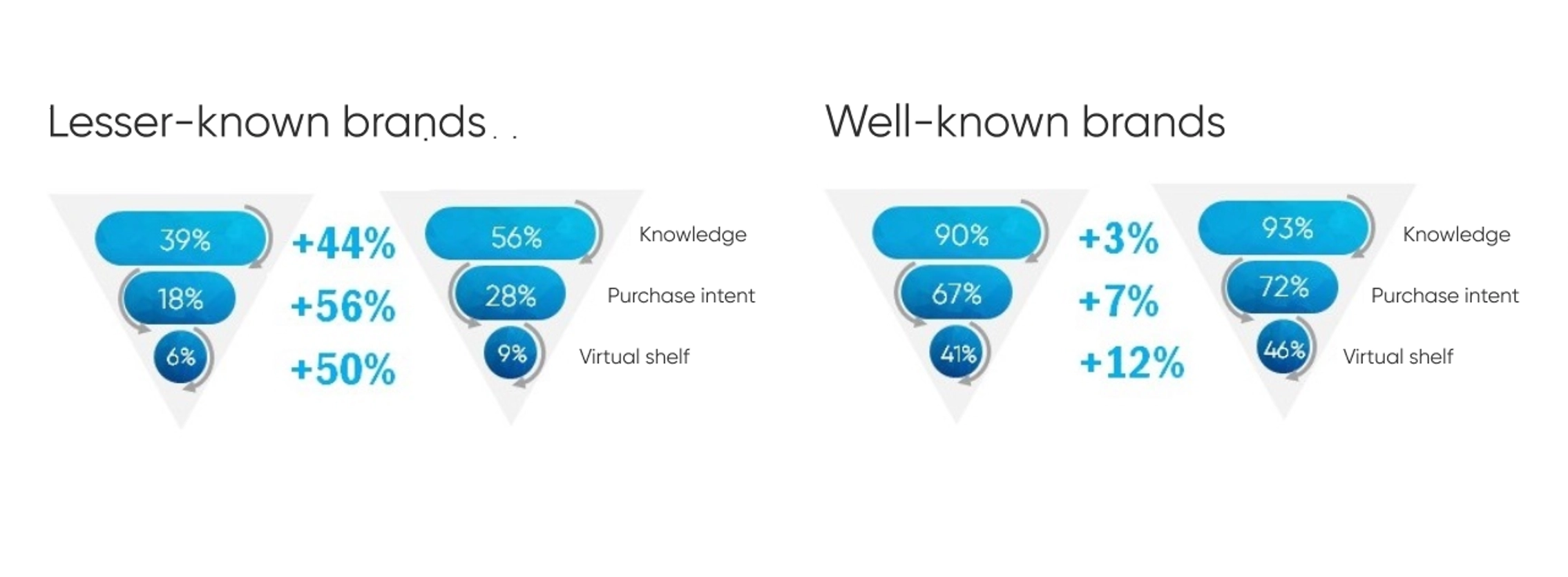
The more well-known a brand is, the more difficult it is to increase knowledge and other metrics. Brands that are familiar to most consumers use advertising campaigns to remind consumers of their presence to maintain a high level of knowledge and differentiate themselves from competitors.
The survey results indicate that TV sponsorship increased brand knowledge for well-known brands even further. This increase in knowledge successfully translated into higher purchase intent and brand preference.
1. Improves brand awareness
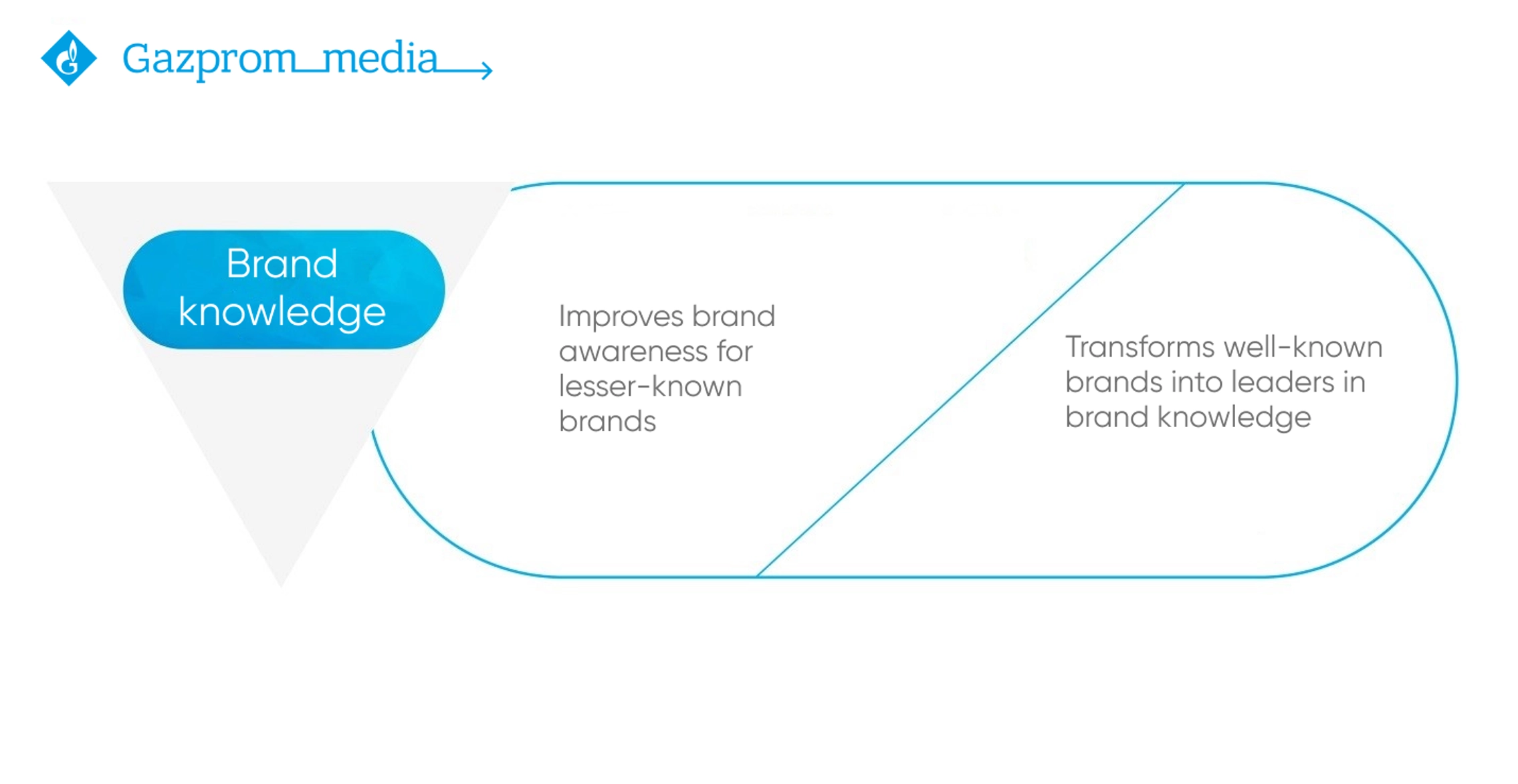
Consumers perform most daily actions quickly, without much thought. This allows individuals to conserve both time and energy for decision making. Automatic actions are influenced by external stimuli, such as advertising.
When shopping, consumers don’t need to perform an economic analysis to choose the most advantageous product. They quickly identify visually familiar products and add them to their carts. Brand awareness does not involve conscious recall, but is rather automatic.
In the Kantar survey, lesser-known brands improved brand recall and brand recognition through sponsorship advertising. Their brand knowledge increased by an average of 44%.
TV sponsorship helps well-known brands maintain their leadership and high knowledge. The brand knowledge in this group increased by 3% on average.
2. Stimulates brand purchase intent
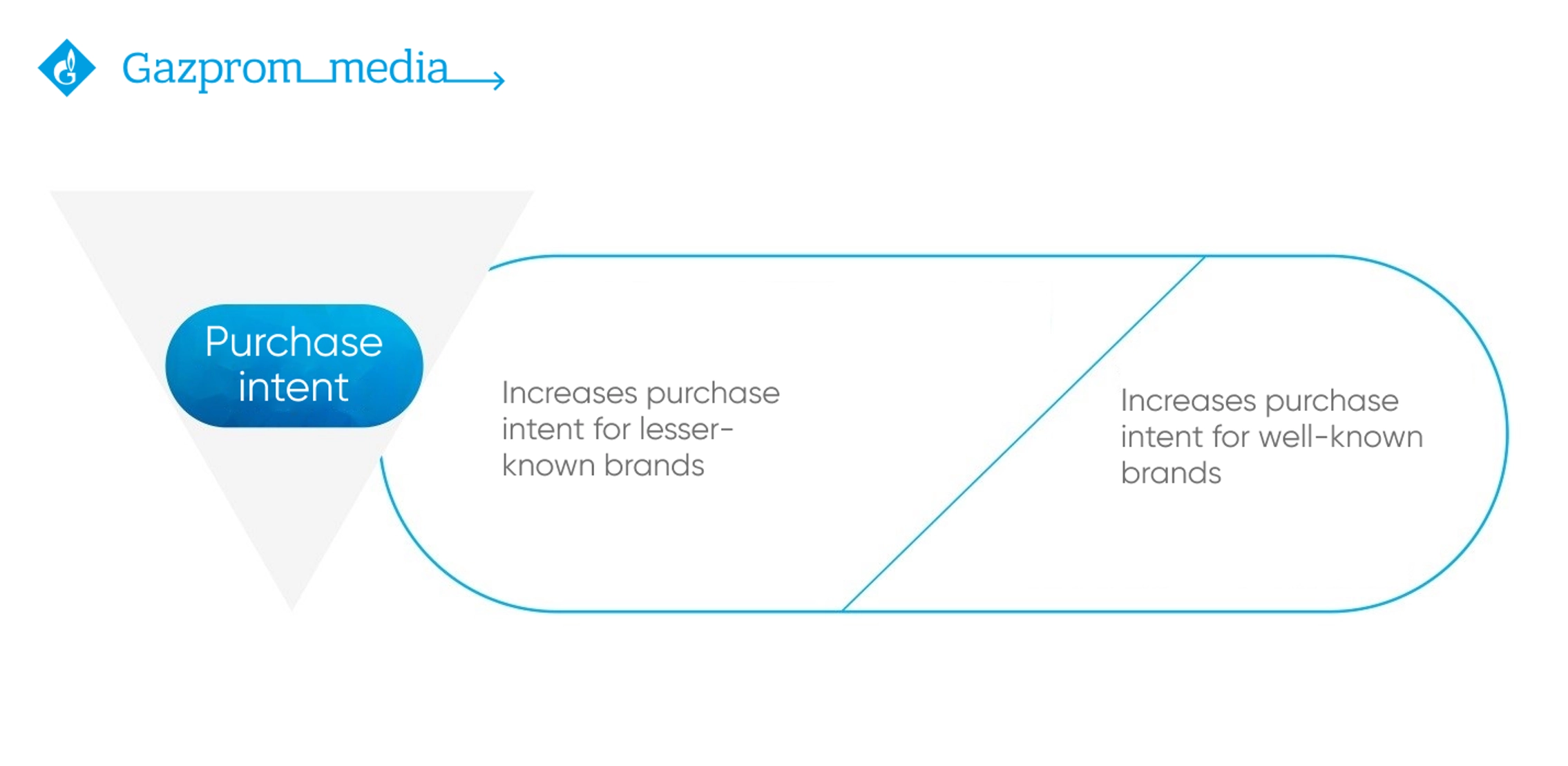
Brand awareness does not guarantee a purchase. However, the buyer will most likely pick the familiar item from among the others on the shelf.
Among lesser-known brands, purchase intent increased by 56%. The well-known brands experienced an average growth of 7% in purchase intent.
During a purchase, respondents consider the sponsor brand more frequently. Their positive attitude toward the sponsorship and their trust in host recommendations influence purchase intent. According to the Kantar survey results, 68% of respondents are guided by host recommendations when choosing products.
3. Increases purchase probability
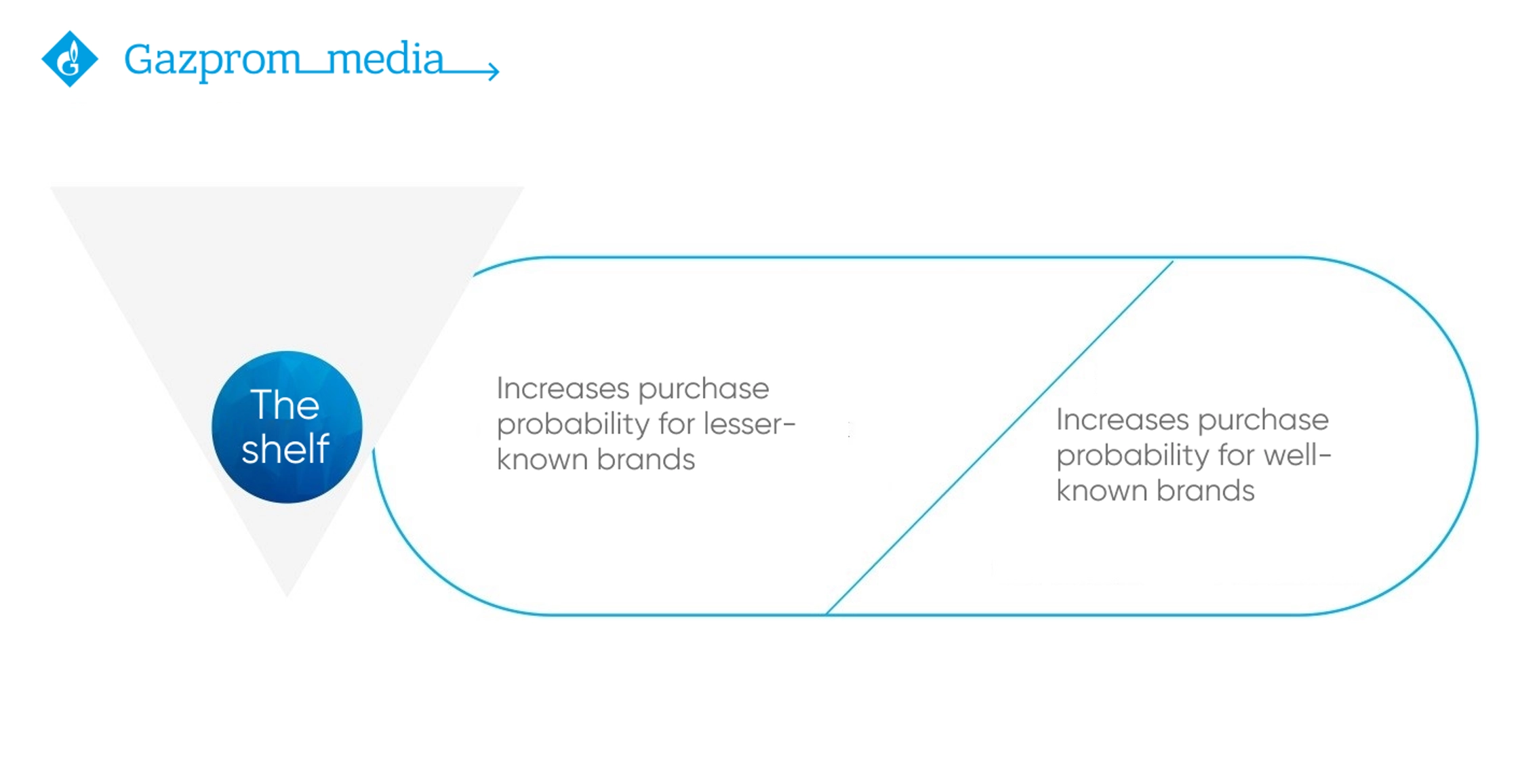
Purchase intent is not the same as the actual purchase. To assess the impact of TV sponsorship on purchases, Kantar asked respondents to choose a product from a virtual shelf containing several brands. Prices were not displayed, and products were rearranged to minimize the influence of external factors.
The selection rate of sponsors’ brand products improved. In the group of lesser-known brands, growth reached 50%.
In the group of well-known brands, the selection rate of their products on a virtual shelf increased by 12%.
4. Shapes brand reputation
Brand, packaging, and presentation all influence how consumers perceive a product. Strong brand reputation increases the value of a product in the consumer’s eyes. The consumer is willing to pay not only for product characteristics but also for brand image.
In the Kantar survey, respondents evaluated the characteristics that corresponded to specific brands. The survey then measured the impact of TV sponsorship on their brand image.
TV sponsorship helps lesser-known brands build their image. TV sponsorship amplified such brand characteristics as “vibrant,” “popular,” “innovative,” and “dynamic” in the eyes of TV viewers.
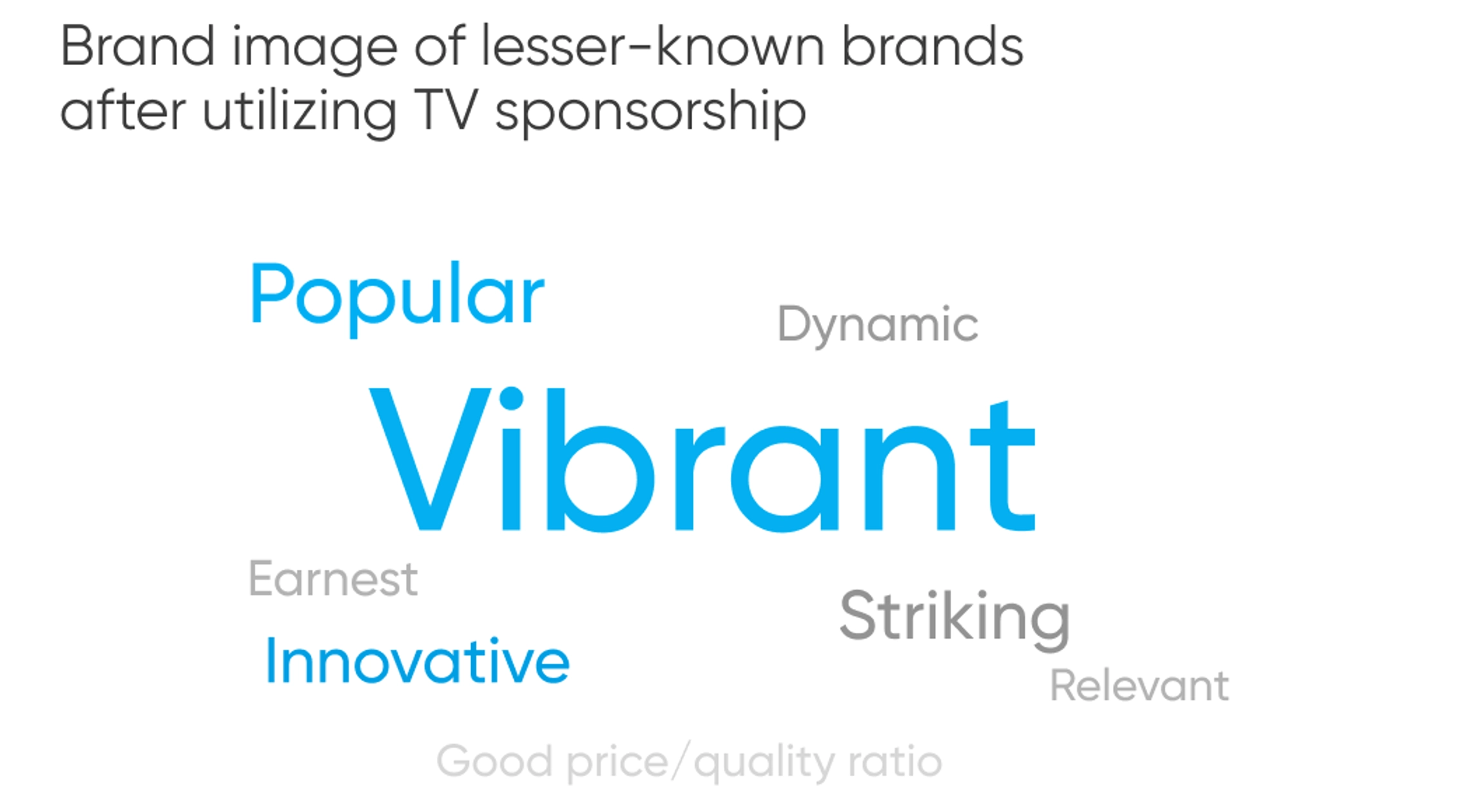
TV sponsorship helps well-known brands enhance their leadership and distinguish themselves from competitors.

Creative campaigns have a long-term impact on the business. They establish an emotional connection between the consumer and the brand, shaping the brand’s reputation and the audience’s attitude toward it. Through integration, the brand not only showcases its attributes, but also tells its story that resonates with TV viewers.
Choosing the right content is essential when planning a sponsorship campaign. The more the sponsorship fits the content, the more effective it will be in promoting the brand image.
When brands should choose TV sponsorship
This survey has shown that TV sponsorship is a universal tool that helps brands improve knowledge, brand image, purchase intent, and purchase conversion. At the same time, TV sponsorship is effective throughout all stages of a product’s lifecycle:
The product launch: TV sponsorship can introduce a new brand to a wide audience, generate interest in the product, and foster a positive attitude towards the brand.
The growth stage: as consumers are not yet aware of the product’s features, content integration can demonstrate how to use the product and highlight its benefits. If a brand currently lacks an image, TV sponsorship can help create and enhance it by adopting the positive characteristics mentioned in the program.
The maturity stage of a product or service typically involves intense competition within the market niche.
Do you want to advertise?
Send us a message right now, and our managers will get back to you right away!
What type of advertising are you after?




